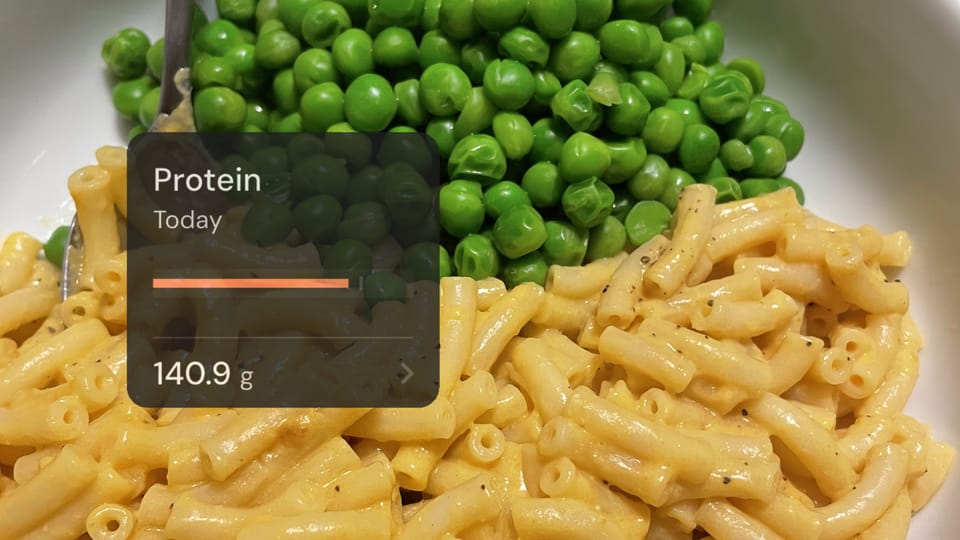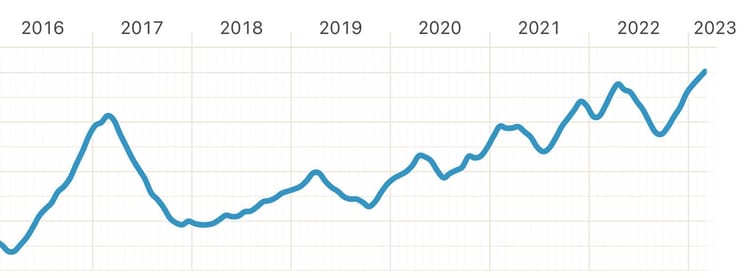How much protein?

I know you know that protein is important for building and maintaining muscle. Protein messaging is everywhere. Food packaging now shows protein right on the front. Commercials highlight more and more protein. Doctors often recommend increasing protein. And if you choose to go vegan or plant-based, everyone will ask you about your protein.
How much protein do you really need? The answer varies according to your body and goals, but the minimum for this macronutrient is probably lower than you think.
Let's make it simple by comparing three recommendations.
The WHO recommendation works out to 70g of protein daily for a 185lb person (the average American weight). Americans on average consume 81g of protein daily (source), so most people are getting enough protein.
“But don't you need more protein when you're strength training?” Yes, because strength training increases protein synthesis.
The NSCA recommendation works out to 135g of protein daily for a 185lb athlete.
Keep in mind, the NSCA recommendation likely overestimates the minimum necessary protein for heavier athletes. That’s because the protein recommendation scales with body weight linearly and indefinitely, but actual protein needs do not. (Some studies scale their protein recommendations according to your lean body mass, but lean mass is difficult to measure accurately.)
“Hmm. I see gym bros post about even more protein than this. Are there any studies about benefits of higher protein intake?”
The Stronger by Science recommendation works out to at least 167g of protein daily for a 185lb person who is consistently strength training. For reference, that's more than twice the average American's intake of 81g daily.
Again, this recommendation likely overestimates protein targets at higher body weights.
Personally, I don't usually reach 0.9 grams per pound per day. Most days my intake is about 0.8 grams per pound, and that's after choosing protein-rich foods and supplementing with one serving of protein powder.
Science shows that even higher protein intakes are likely safe, but you'll either eat so much total food that your body increases its fat storage, or you'll be restricting your food choices too much to enjoy your meals.
Eat according to your goals, not for maximum possible protein. Make sure your strength training is consistent, your foods have variety and aren’t very processed, and your sleep is great. If, after two months, you still don’t sense any muscle gain, then consider protein as a variable to increase.
To learn about your average daily protein intake, try using a nutrition tracking app for just two weeks as an experiment. I recommend MacroFactor in my list of apps, because it’s accurate and never shames you.
To summarize these daily protein recommendations:
- For safety, get at least 0.38 grams per pound of body weight (WHO).
- For athletes, aim for at least 0.73 grams per pound of body weight (NSCA).
- For people seeking more muscle gain while strength training, aim for 0.9 grams per pound of body weight (Stronger by Science).
Remember: None of these recommendations are personalized to your body composition, age, or other health factors. Always check with your doctor or a nutritionist for more accurate recommendations!




